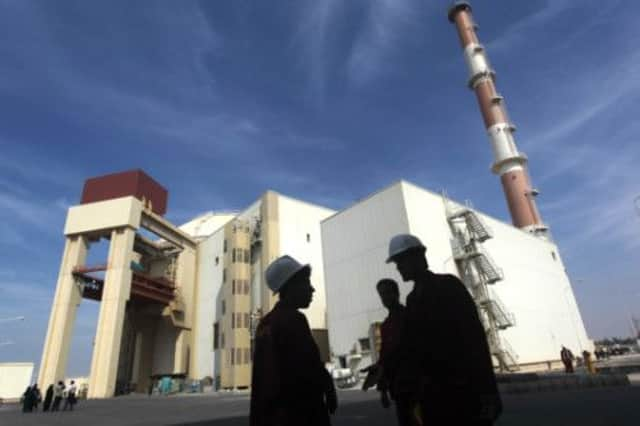Iran refuses to surrender stockpiles of enriched uranium


There are grounds for guarded optimism, but few expect an early breakthrough on the decade-old standoff on Iran’s nuclear ambitions.
Iran insisted yesterday it would not ship abroad its enriched uranium stockpiles, rejecting a key Western demand, but signalled flexibility on other major aspects of its nuclear programme.
Advertisement
Hide AdAdvertisement
Hide Ad“We will negotiate regarding the form, amount and various levels of [uranium] enrichment,” Iran’s deputy foreign minister, Abbas Araqchi, said. But shipping out the “enriched material is a red line for Iran”.
Since the last talks ended in stalemate in April, Iranians have elected a moderate new president, Hassan Rouhani, who pledged to bring Iran in from the cold and ease crippling nuclear sanctions.
“It is good to have centrifuges running, provided people’s lives and livelihoods are also running,” he declared memorably during his June election campaign.
Last month Mr Rouhani broke a central taboo of Iran’s post-revolutionary system by taking a phonecall from an American leader. His 15-minute chat with Barack Obama was the first presidential-level contact between the two countries in 34 years.
Mr Rouhani says he wants a deal on Iran’s nuclear ambitions within six months and has appointed his well-regarded, US-educated foreign minister, Mohammad Javad Zarif, to spearhead talks with the big powers. These comprise the UN Security Council’s five permanent members – the US, Russia, China, Britain and France – plus Germany; the so-called P5+1.
“It’s looking better than before but it’s very, very far from a done deal,” said Trita Parsi, president of the National Iranian American Council, an advocacy group. “The process is very fragile and the opponents of diplomacy on both sides are doing everything they can to make sure that this effort fails.”
Vitally, for now at least, Mr Rouhani has the backing of Iran’s hardline supreme leader, Ayatollah Ali Khamenei, to explore the possibilities of a nuclear deal.
“The domestic political conditions in Tehran have never been as propitious for a settlement as they are today,” said Sir Richard Dalton, a former British ambassador to Iran.
Advertisement
Hide AdAdvertisement
Hide AdHowever, many Iran experts point out that Mr Obama enjoys no such latitude from the US Congress, making it questionable whether he can deliver significantly on easing sanctions if Tehran does give ground.
“The anti-Iran vibe is something that unites all of Congress, so Obama might not be able to offer Tehran much,” said Dina Esfandiary, a nuclear non-proliferation expert at the International Institute for Strategic Studies in London.
Mr Araqchi said Iran will present a “specific” new plan at the two-day talks in Geneva. But Tehran also expects the world powers to make new proposals.
Still standing is a P5+1 offer for Iran to suspend its most sensitive uranium enrichment in return for modest sanctions relief.
Any interim deal is likely to focus on Iran’s halting enrichment of uranium to 20 per cent purity – a short technological leap from making bomb-grade fissile material – and a limit on centrifuge numbers.